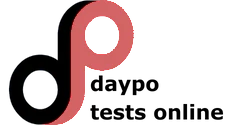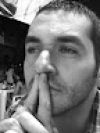TEST BORRADO, QUIZÁS LE INTERESE:
CPLFDELI UNIT 4
|
|
|---|
REALIZAR TEST
|
Título del Test:
CPLFDELI UNIT 4 Descripción: CPLFDELI UNIT 4 Autor:
Fecha de Creación: 10/06/2023 Categoría: Idiomas Número Preguntas: 19 |
COMPARTE EL TEST



COMENTAR
No hay ningún comentario sobre este test.
Temario:
|
1. The most important monarchs in Britain’s 17th century were: a. James I and Charles I b. Queen Anne and George I c. Henry VIII and Elizabeth I d. Kind Edward VI and Queen May I. 2. Select the WRONG sentence. During the 17th century… a. The Anglican Church accepted the King as head of the Church b. Events in Scotland resulted in a civil war c. The Puritans wanted a democratic Church d. The Presbiterian Kirk (Church) of Scotland wanted a democratic Church. 3. The strongest figure in Republican Britain (1649-1660) was/ were: a. The Royalists b. Admiral Nelson c. Oliver Cromwell d. Archbishop Laud. 4. The 2 major crises during the Restauration (Charles II) in Britain were: a. The Fire of London and the Plague b. The Napoleonic Wars and The Crimean War c. The American War of Independence and the Industrial Revolution d. The Norman Conquest and the Hundred Years’ War. 5. The first political parties in Britain were: a. The Royalists and the Cavaliers b. The Roundheaded and the Royalists c. The Commons and the Kirks d. The Whigs and the Tories. 6. Which king was executed in 1649? a. King James I b. King Charles I c. King Charles II d. King James II. 7. Select the WRONG sentence. British Literature on the 17th century is characterised by: a. Rise of the novel as a popular genre b. The theme of transience c. Utopian narrative: detective stories, ghost stories and fantasy writing d. Theatre is known as ‘the comedy of manners’. 8. The 2 major English political philosophers in the 17th century are: a. Andrew Marvel and John Donne b. John Milton and Aphra Behn c. Isaac Newton and William Halley d. Thomas Hobbes and John Locke. 9. The first profitable English colony was: a. Virginia b. Massachusetts c. Maryland d. India. 10. Select the WRONG sentence about the 18th century in Britain. a. Britain lost its American colonies b. There were Jacobite Revolts in Ireland c. Population increased d. Battle of Culloden happened in Scotland. 11. Who are considered the fathers of the traditional English novel in the 18th century? a. Henry Fielding and Samuel Jackson b. Jonathan Swift and Alexander Pope c. Joseph Addison and Richard Steele d. Daniel Defoe and Robinson Crusoe. 12. The first rebellion that started the American War of Independence in 1773 is… a. The Trade Triangle b. The Boston Tea Party c. The Battle of Culloden d. The Battle of Trafalgar. 13. The Industrial Revolutions in Britain mainly happens during: a. The 17th century b. The 18th century c. The 19th century d. The 20th century. 14. Select the WRONG sentence about the 19th century in Britain and America: a. Admiral Nelson won the battle of Trafalgar b. Victorian era was characterised by an emotional restrain c. American colonies got its independence from Britain d. Charles Darwin wrote “On the origin of Species”. 15. Select the WRONG sentence about the 19th century literature: a. The novel flourished b. There was a growing prestige of science and philosophy; therefore, realism. c. Trascendentalism was an important literary movement in America d. It is also called Anglo- Saxon Literature. 16. Who is one of the most popular writers in his time, who won the Nobel Prize in 1907 and wrote “The Jungle Book”? a. Charles Dickens b. William Shakespeare c. Jane Austen d. Joseph Rudyard Kipling. 17. It is NOT a Charles Dickens´ work: a. Oliver Twist b. Portrait of Dorian Gray c. David Copperfield d. Great Expectations. 18. At the end of the 18th century and until 1850, English Literature was characterised by individualism, past and natural environments, exalted nationalism, intense emotions… This period is known as: a. Romanticism b. Realism c. Enlightment d. Restoration. 19. It is NOT an example of Gothic literature: a. The Moonstone b. Sherlock Holmes c. Leviathan d. The Scarlet Letter. |
Denunciar Test




